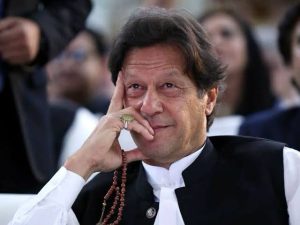About Imran Khan
Tags: 804, imran khan, imran khan 2024, imran khan election, Qadi No 804

Imran Khan, born on October 5, 1952, in Lahore, Pakistan, is a prominent figure known for his versatile career as a cricketer, philanthropist, and politician. As of my last knowledge update in January 2024, he has played a significant role in shaping Pakistan’s political landscape. Let’s delve into various aspects of Imran Khan’s life and career.
Early Life and Cricket Career:
Imran Khan hails from an affluent family in Lahore. He attended Aitchison College and later studied at Keble College, Oxford, where he developed his cricketing skills. Imran made his international cricket debut for Pakistan in 1971, and over the next two decades, he became one of the most celebrated cricketers in the world.
His cricketing pinnacle came during the 1992 Cricket World Cup when he captained the Pakistani cricket team to victory, securing the country’s first-ever World Cup title. Imran Khan’s leadership and all-round performance, both as a captain and a player, earned him admiration and established his legacy in the cricketing world.
Political Transition:
Following his retirement from cricket in 1992, Imran Khan shifted his focus to politics. In 1996, he founded the Pakistan Tehreek-e-Insaf (PTI), a political party with the vision of creating a just and corruption-free Pakistan. However, his initial forays into politics did not yield significant electoral success.
Over the years, Imran Khan remained steadfast in his commitment to bring about political change in Pakistan. His political ideology centered on anti-corruption, good governance, and social justice. His persistence bore fruit when PTI gradually gained momentum, especially among the youth, leading to increased electoral support.
Political Achievements:
Imran Khan’s political journey reached a historic milestone when PTI emerged as the single-largest party in the 2018 general elections. After forming alliances with smaller parties, Imran Khan secured the majority needed to become the 22nd Prime Minister of Pakistan. His victory marked a shift in the country’s political landscape, breaking the traditional dominance of two major parties, the Pakistan Muslim League-Nawaz (PML-N) and the Pakistan Peoples Party (PPP).
As Prime Minister, Imran Khan faced a myriad of challenges, including economic issues, governance reforms, and foreign policy matters. His government implemented various initiatives, focusing on social welfare, poverty alleviation, and education. The flagship program “Ehsaas” aimed at providing financial assistance to vulnerable segments of society, reflecting his commitment to inclusive development.
Economic Challenges and Reforms:
One of the pressing challenges during Imran Khan’s tenure was managing Pakistan’s economic difficulties. The government undertook structural reforms, seeking support from international financial institutions to stabilize the economy. However, these measures faced criticism and challenges, with concerns raised about the impact on the general population.
Efforts were made to attract foreign investment, improve tax collection mechanisms, and address corruption. Imran Khan’s government aimed to create an environment conducive to economic growth, but the results were subject to ongoing scrutiny and debate.
Foreign Policy and Regional Dynamics:
Imran Khan’s leadership also influenced Pakistan’s foreign policy, particularly in managing relations with neighboring countries. He engaged in diplomatic efforts to ease tensions with India, emphasizing dialogue as a means to address long-standing issues. However, regional complexities, including the Kashmir dispute, remained significant challenges.
On the international stage, Imran Khan advocated for peace and highlighted issues such as climate change and global inequality. His speeches at the United Nations and other forums underscored his commitment to addressing global challenges through collaborative efforts.
Criticisms and Controversies:
Imran Khan’s tenure as Prime Minister has not been without controversies and criticisms. Opposition parties raised concerns about governance issues, economic policies, and alleged political victimization. The media played a crucial role in shaping public perceptions, with debates on the effectiveness of the government’s initiatives and the overall direction of the country.
Philanthropy and Social Initiatives:
Apart from his political endeavors, Imran Khan has been actively involved in philanthropy and social work. He founded the Shaukat Khanum Memorial Cancer Hospital & Research Centre (SKMCH&RC) in Lahore in memory of his mother, who succumbed to cancer. The hospital provides cancer treatment to patients, and its success has been a testament to Imran Khan’s commitment to healthcare.
Additionally, he established Namal University in Mianwali, focusing on providing quality education to students from underprivileged backgrounds. Imran Khan’s initiatives in the social sector reflect his dedication to addressing critical issues affecting Pakistani society.
Conclusion:
Imran Khan’s life journey has been characterized by remarkable achievements in cricket, philanthropy, and politics. As a cricketing icon, he brought glory to Pakistan by leading the national team to its first World Cup victory. In the realm of politics, his ascent to the position of Prime Minister marked a shift in the country’s political dynamics.
Imran Khan’s leadership has been a subject of intense scrutiny and debate, reflecting the complexities of governing a diverse and populous nation like Pakistan. His legacy will be shaped by the outcomes of his policies, the impact on the economy and society, and the enduring influence he leaves on Pakistan’s political landscape.